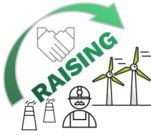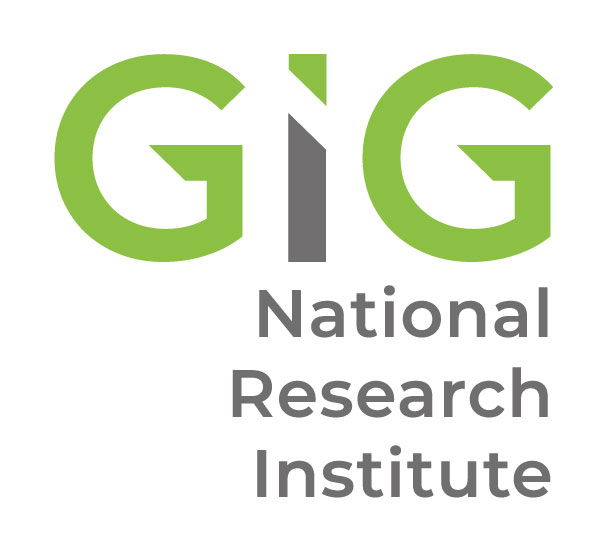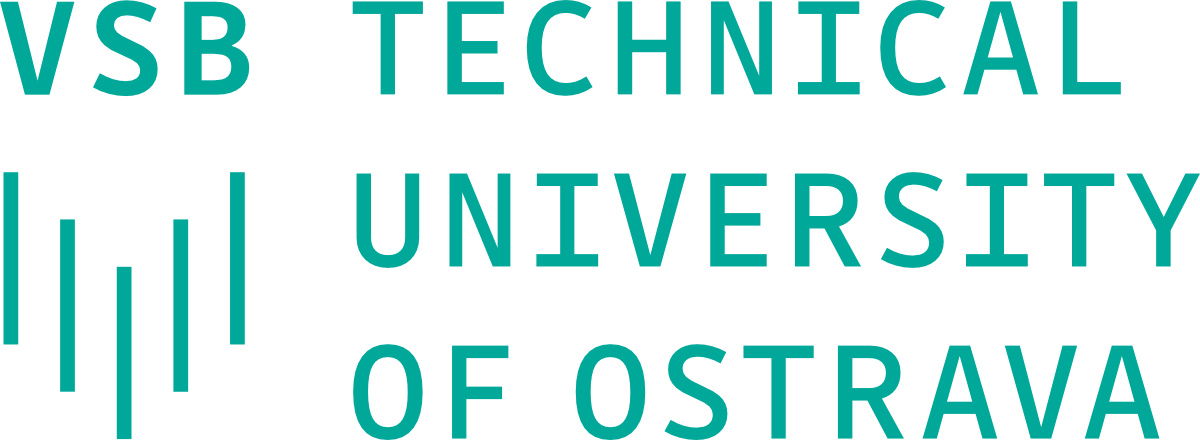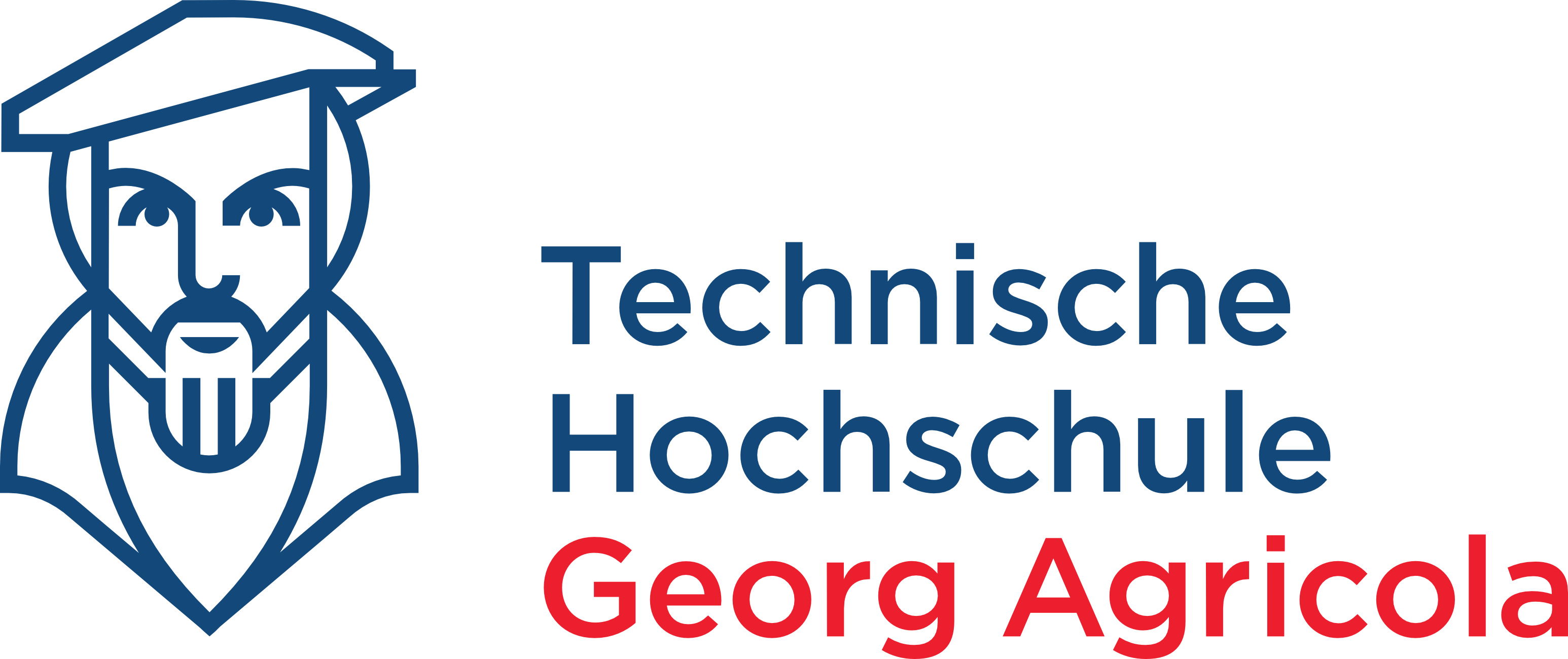Objectives
The mining regions in the European Union are undergoing an energy transition moving from a fossil fuel based economy to a sustainable, low-carbon, circular economy. The set of carbon climate neutrality targets adopted by the European Union pose a huge challenge to the European mining regions to carry out a just transition (Kiewra et al. 2019, McCauley& Heffron 2018), which will require changes at the social, economic and technological levels. Each partner country of the RAISING project is at a different stage of this process. Figure below depicts the Just Transition Fund territories (2021-2027) in Germany, Czech Republic and Poland.
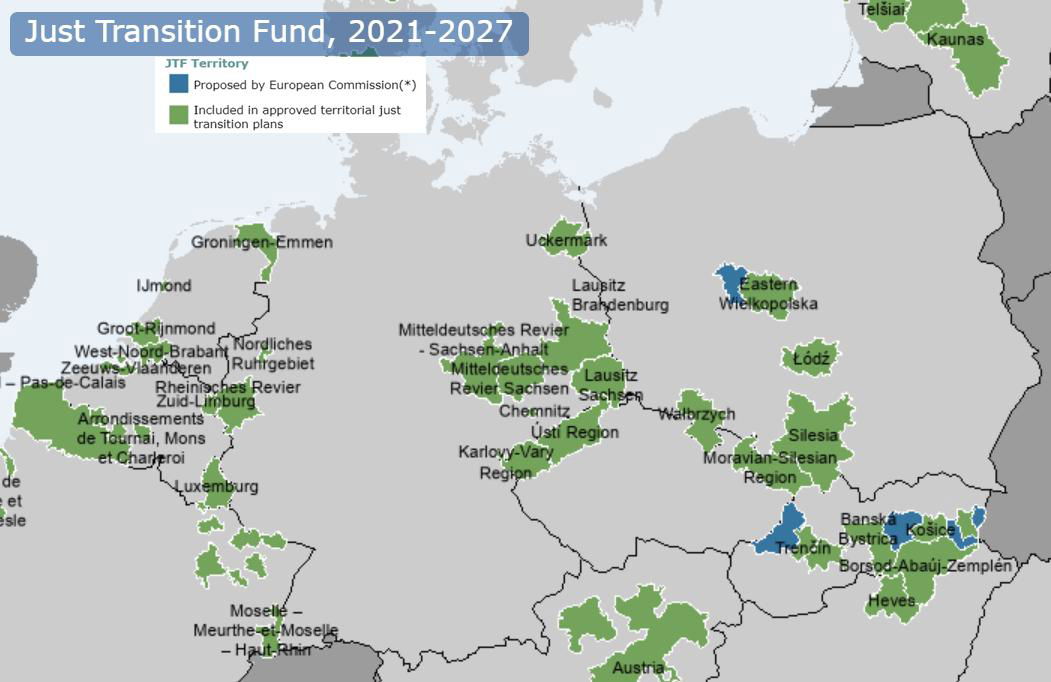
The main objective of the project is to raise public awareness, and in particular the awareness of small local communities about the need to transform hard coal and lignite mining and promote new visions for the development of those regions. This corresponds to the strategic objectives of the EU Green Deal and RFCS 2024 call (Article 4- supporting the just transition of the coal sector and regions).
Activities within the project will include elements of education through the organization of meetings and workshops addressing the transformation itself and transformation of mining regions into sustainable development centres, intersectoral cooperation with representatives of local authorities and businesses, and media campaigns involving the public in the subject matter of the project through interactive platforms and other forms of dialogue with project participants.
OPERATIONAL OBJECTIVES:
OBJECTIVE 1
Identification of the main premises determining the process of transformation of hard coal and lignite mining industry by:
- Providing open access data on the mining sector, especially data of socio-economic and environmental nature (incl. methane), useful for (1) general public to get informed of the key impacts coal industry has on their communities, and for (2) decision makers in the central and regional governments constantly in need for data-driven evidence-based approach when designing policies and programs targeting coal mining communities
- Providing up-to-date data in the form of easily accessible information on global trends in the decarbonization of the economy and reduction of greenhouse gas emissions, defining the challenges for coal and lignite mining in terms of the development directions of the European economy.
OBJECTIVE 2
Strengthening public participation to engage small community stakeholders in the transformation process by:
- Identification of the most vulnerable(s) in small local coal and lignite mining transition communities,
- Organization of workshops and webinars to disseminate knowledge and good practices and recommendations for mining regions,
- Organizing public debates on the transformation of mining and the future of mining regions in a small mining community,
- Development of an electronic catalogue of good practices presenting best practices within the scope of raising awareness and public participation,
- Providing data on good practices in the form of an interactive database (a graphic map).
OBJECTIVE 3
Implementation of an educational and social campaign to support the development of the mining regions potential by:
- Developing the assumptions of the educational and social campaign taking into account the specifics of small local communities in mining regions, cooperation with trade unions and industry Associated with document Ref. Ares(2025)4396845 - 02/06/2025
- Project: 101216335 — RAISING —RFCS-2024 –RFCS Annual Call 2024
- Implementation of an educational and social campaign presenting the challenges of the opportunity to transform mining regions.
- Development and dissemination of recommendations for mining regions on solutions to support their sustainable development.

Funded by the European Union. Views and opinions expressed are however those of the author(s) only and do not necessarily reflect those of the European Union or European Research Executive Agency. Neither the European Union nor the granting authority can be held responsible for them.
© 2025 raising.gig.eu | Accessibility Statement
